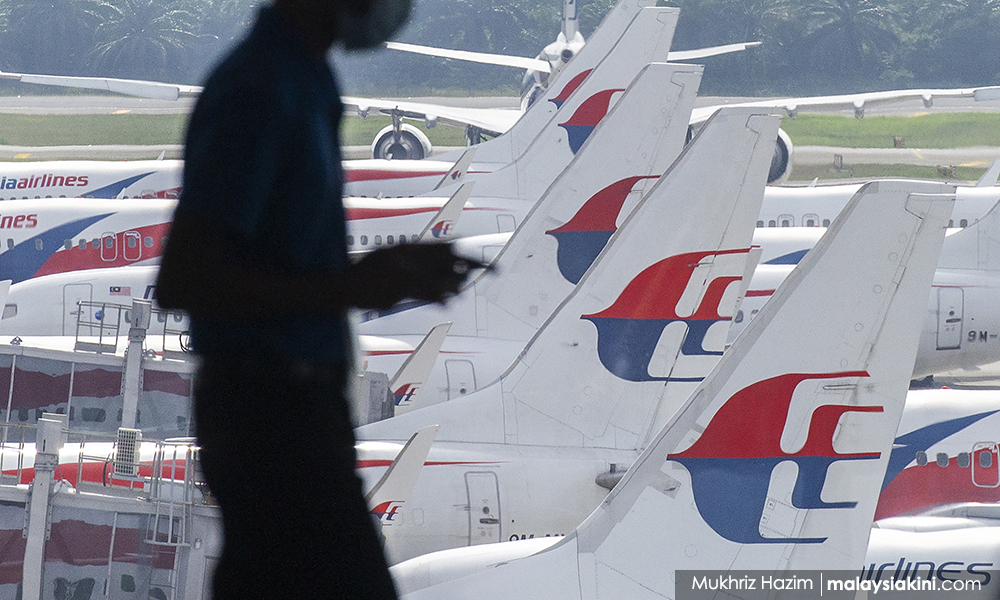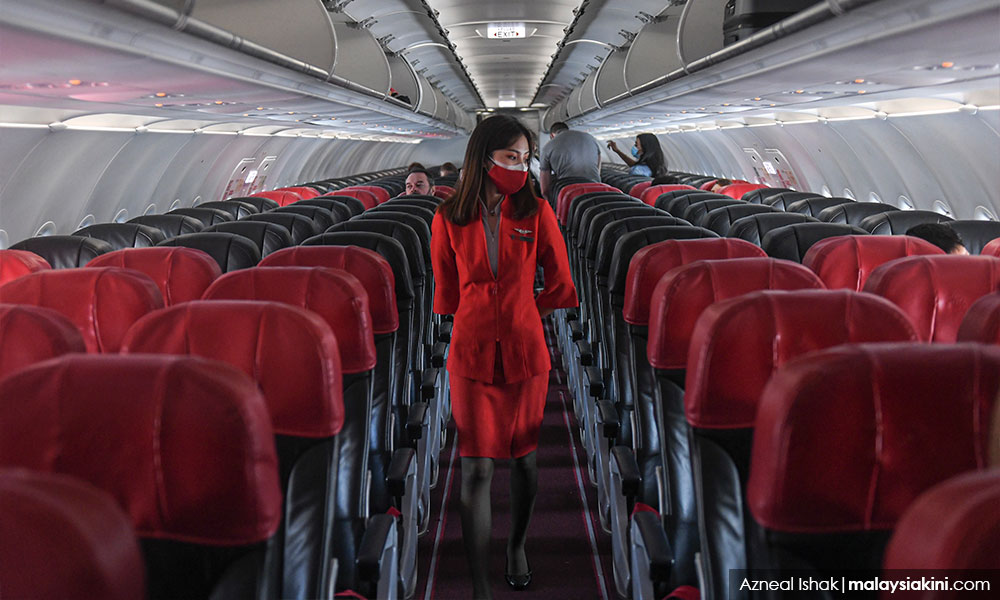The recent dispute between Transport Minister Anthony Loke and his predecessor Wee Ka Siong over ticket prices from the peninsula to East Malaysia highlights a persistent issue that has no simple solution, said industry experts.
They noted that this issue particularly crops up during holiday seasons like Hari Raya and Christmas as well as traditional festivals such as Gawai and Kaamatan.
However, airline experts do not agree to a fixed or ceiling price, as airlines still need to generate profits to sustain their business operations.
"Flight tickets are a function of supply and demand, determined by market forces. If it is fixed, it distorts the market," Endau Analytics founder Shukor Yusof told Malaysiakini.
Concurring, Trade Union for Aviation president and Aviation Bureau Asean Pacific chief consultant Ismail Nasaruddin agreed that airlines need to function with supply and demand from the consumers.
"The consumers have to understand that before they purchase (tickets), everything has to be in order.
"When there is a demand, prices start to shift. Like hotels, they use the same formula that those who are willing to travel early, pay cheaper fares," he said.

Regardless of the disagreement between Loke and Wee, the ticket prices for domestic flights across the South China Sea can still be considered expensive for B40 and M40.
Nonetheless, air travel is on the rise overall as Malaysia Airports Holdings Berhad managing director Iskandar Mizal Mahmood announced today that total passenger movements in Malaysia increased by 15 percent over the preceding month to 6.7 million in March.
Ismail pointed out that not all flights are profitable for the airline and, in some cases, they may even result in losses.
"You may see the flight is full but the price is cheap so the airline has to bear the cost, which may be just enough to cover fuel.
"This does not include the cabin crew's salary and aircraft maintenance. Every little detail needs to be looked into," he added.
According to Ismail, there is no such thing as a win-win situation for both parties.
In December, Loke stated that the government has no plans to impose fixed flight ticket prices as it may negatively affect the passengers.
Ismail explained that the airline company has a short-term promotion where people can enjoy cheaper ticket prices.
"If you buy flight tickets three or six months before, they will offer you a cheaper price and that will be a market strategy by the airline," he said.
Increasing flight frequency
In response to Wee's suggestion of increasing flight frequency, Ismail pointed out that it is not as simple as it may seem.
"Can we add more planes and frequencies? Yes, but these frequencies and adding aeroplanes have to go through regulations and policies so they (the airports) must be notified," he said.

Shukor also explained that the capacity will be added when there is demand for it.
"More flights don't mean cheaper fares. Capacity is added when there's demand," he said.
Shukor viewed that the government should not intervene in flight ticket prices to sustain the airline's business for a long period of time.
"In my opinion ticket prices ought to be left alone where they will eventually find their own levels. The government shouldn't interfere.
"The airline industry is a zero-sum game. Airlines need to make profits or go bust," he said. - Mkini




No comments:
Post a Comment
Note: Only a member of this blog may post a comment.